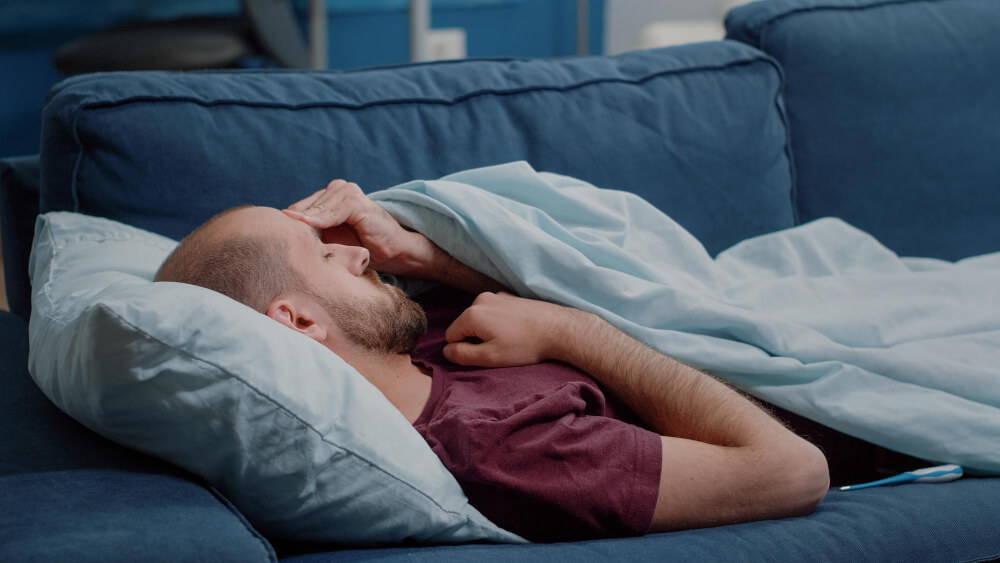For many, a good night’s sleep is a precious commodity. Yet, millions of people struggle with chronic sleep deprivation and its associated health consequences. One major culprit is sleep apnea, a sleep disorder characterized by repeated pauses in breathing during sleep.
Understanding Sleep Apnea
Sleep apnea occurs when your throat muscles relax or the airway becomes blocked, disrupting your breathing patterns throughout the night. These disruptions can range from brief pauses lasting a few seconds to complete airway closures for longer periods.
Types of Sleep Apnea:
- Obstructive sleep apnea (OSA): The most common type, caused by a physical obstruction in the airway.
- Central sleep apnea (CSA): Less common, caused by brain signals failing to send proper breathing instructions to the muscles.
- Mixed sleep apnea: A combination of both OSA and CSA.
Consequences of Sleep Apnea:
Sleep apnea is far more than just annoying snoring. Its consequences can be both immediate and long-term, impacting your health and well-being.
Immediate consequences:
Excessive daytime sleepiness: Feeling tired and fatigued throughout the day, impacting work, relationships, and overall quality of life.
Morning headaches: Waking up with a pounding headache due to sleep disruptions.
Irritability and mood swings: Difficulty concentrating, feeling short-tempered and less patient.
Reduced libido and sexual function: Sleep deprivation can negatively affect sex drive and performance.
Impaired cognitive function: Difficulty focusing, remembering information, and making decisions.
Long-term consequences:
Increased risk of chronic diseases: Sleep apnea is linked to a higher risk of cardiovascular disease, stroke, high blood pressure, diabetes, and obesity.
Depression and anxiety: Chronic sleep deprivation can contribute to mental health issues.
Accidents and injuries: Drowsiness can increase the risk of accidents while driving or operating machinery.
Lower quality of life: Sleep apnea can significantly impact your overall well-being and quality of life.
Recognizing the Signs:
If you suspect you might have sleep apnea, watch out for these common symptoms:
- Loud snoring: A classic sign, often reported by partners or family members.
- Frequent awakenings during sleep: Waking up gasping for air or feeling choked.
- Morning headaches: Waking up with a dull ache in your head.
Dry mouth or sore throat: Feeling dehydrated or experiencing throat irritation after sleeping. - Excessive daytime sleepiness: Feeling tired and unable to stay awake during the day.
- Difficulty concentrating: Having trouble focusing on tasks or remembering information.
- Irritability and mood swings: Feeling easily frustrated or impatient.
Seeking Help:
If you experience any of these symptoms, it’s crucial to consult with your doctor. They can diagnose sleep apnea through a sleep study, which monitors your breathing and other vital signs during sleep.

Treatment Options:
Fortunately, effective treatments are available to help you manage sleep apnea and reclaim your sleep. Depending on the severity and type, your doctor may recommend:
- Continuous positive airway pressure (CPAP): A machine that delivers air pressure through a mask to keep your airway open during sleep.
- Oral appliances: Devices worn in the mouth to hold the lower jaw forward and improve airflow.
- Surgery: In some cases, surgery might be recommended to remove or reshape tissue blocking the airway.
- Lifestyle changes: Losing weight, quitting smoking, and avoiding alcohol before bed can improve sleep apnea symptoms.
Reclaim Your Sleep, Reclaim Your Health:
By addressing your sleep apnea, you can unlock a world of benefits:
- Improved sleep quality: Sleeping soundly through the night and waking up feeling refreshed.
- Increased energy levels: Having more energy throughout the day to be productive and enjoy activities.
- Enhanced mood and concentration: Feeling happier, more positive, and able to focus better.
- Reduced risk of chronic diseases: Lowering your risk of developing serious health problems.
- Improved overall health and well-being: Feeling better physically and mentally, leading to a more fulfilling life.
Taking Control:
Don’t let sleep apnea control your life. With the right diagnosis and treatment, you can reclaim your sleep, boost your health, and wake up with a renewed sense of energy and well-being. Remember, sleep is essential for your physical and mental health. By prioritizing sleep and addressing any underlying sleep disorders like sleep apnea, you can pave the way for a healthier and happier life.

